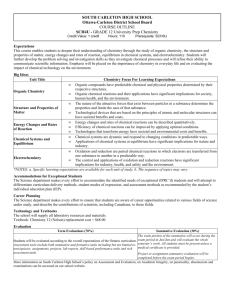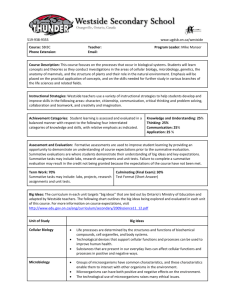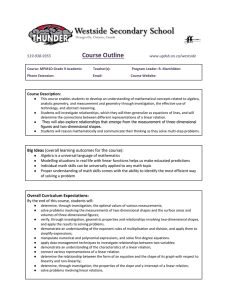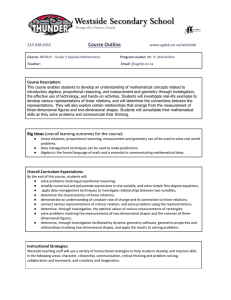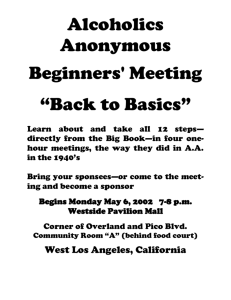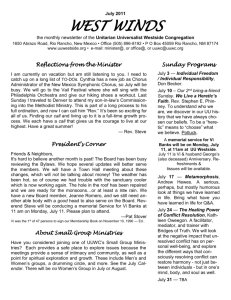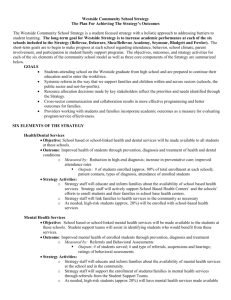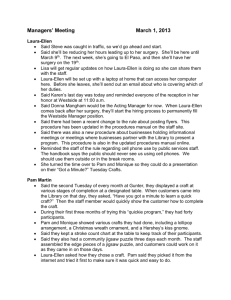SCH4U
advertisement
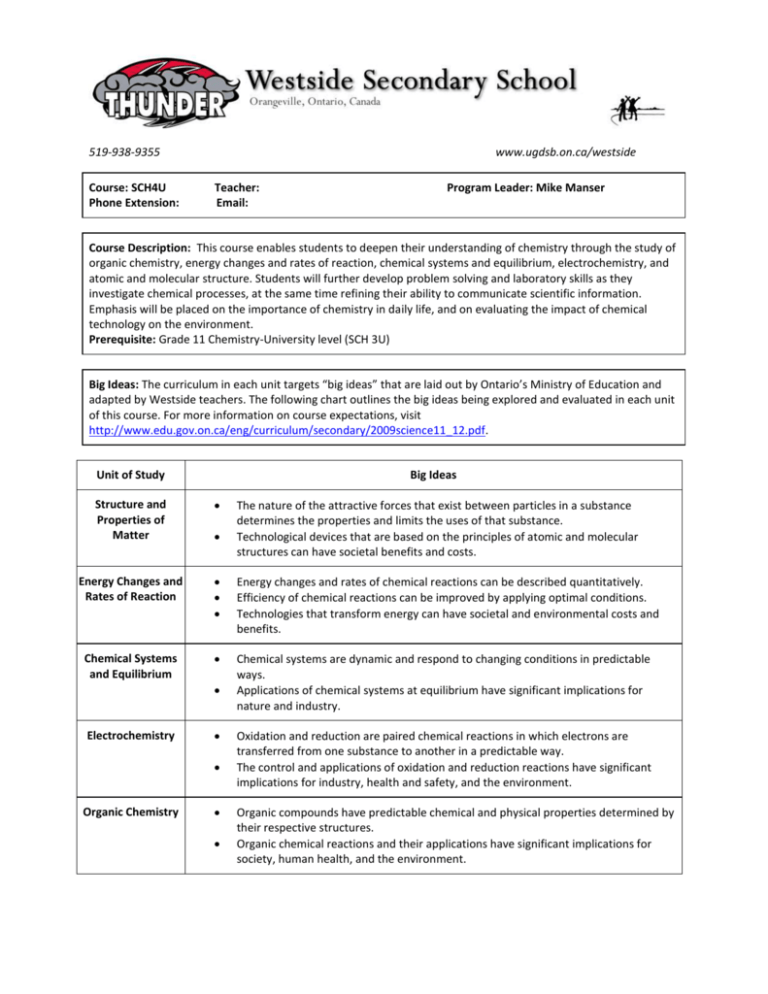
519-938-9355 Course: SCH4U Phone Extension: www.ugdsb.on.ca/westside Teacher: Email: Program Leader: Mike Manser Course Description: This course enables students to deepen their understanding of chemistry through the study of organic chemistry, energy changes and rates of reaction, chemical systems and equilibrium, electrochemistry, and atomic and molecular structure. Students will further develop problem solving and laboratory skills as they investigate chemical processes, at the same time refining their ability to communicate scientific information. Emphasis will be placed on the importance of chemistry in daily life, and on evaluating the impact of chemical technology on the environment. Prerequisite: Grade 11 Chemistry-University level (SCH 3U) Big Ideas: The curriculum in each unit targets “big ideas” that are laid out by Ontario’s Ministry of Education and adapted by Westside teachers. The following chart outlines the big ideas being explored and evaluated in each unit of this course. For more information on course expectations, visit http://www.edu.gov.on.ca/eng/curriculum/secondary/2009science11_12.pdf. Unit of Study Big Ideas Structure and Properties of Matter Energy Changes and Rates of Reaction Energy changes and rates of chemical reactions can be described quantitatively. Efficiency of chemical reactions can be improved by applying optimal conditions. Technologies that transform energy can have societal and environmental costs and benefits. Chemical Systems and Equilibrium Chemical systems are dynamic and respond to changing conditions in predictable ways. Applications of chemical systems at equilibrium have significant implications for nature and industry. Electrochemistry Organic Chemistry The nature of the attractive forces that exist between particles in a substance determines the properties and limits the uses of that substance. Technological devices that are based on the principles of atomic and molecular structures can have societal benefits and costs. Oxidation and reduction are paired chemical reactions in which electrons are transferred from one substance to another in a predictable way. The control and applications of oxidation and reduction reactions have significant implications for industry, health and safety, and the environment. Organic compounds have predictable chemical and physical properties determined by their respective structures. Organic chemical reactions and their applications have significant implications for society, human health, and the environment. Instructional Strategies: Westside teachers use a variety of instructional strategies to help students develop and improve skills in the following areas: character, citizenship, communication, critical thinking and problem solving, collaboration and teamwork, and creativity and imagination. Achievement Categories: Student learning is assessed and evaluated in a balanced manner with respect to the following four interrelated categories of knowledge and skills, with relative emphasis as indicated. Knowledge and Understanding Thinking & Inquiry Communication Application Assessment and Evaluation: Formative assessments are used to improve student learning by providing an opportunity to demonstrate an understanding of course expectations prior to the summative evaluation. Summative evaluations are where students demonstrate their understanding of big ideas and key expectations. Summative tasks may include labs, research assignments and unit tests. Failure to complete a summative evaluation may result in the credit not being granted because the expectations of the course have not been met. Term Work 70% Final Exam 30% Late Work Students are expected to complete all assigned work and submit it by the teacher's established due date. Every attempt will be made to encourage students to complete all assigned work on time so their grade represent their actual achievement. Should a student submit work past the due date, a late mark penalty will be assigned. All summative assessments must be submitted for course credit. Please see Westside's Assessment and Evaluation Policy for more details. Safety Agreement All students will receive a safety agreement and will sign and return the UGDSB Student Safety Agreement. Textbook Nelson Chemistry 12 -replacement cost for a lost textbook is $80.00 Electronic Devices The science department at Westside S.S. has a policy that no electronic devices (e.g. cell phones, tablets, iPods, mp3 players etc.) are allowed during evaluations. For this reason, students are reminded to bring a scientific calculator when needed. Classroom Rules Students are expected to follow the rules of conduct, as referenced on the school’s web site: http://www.ugdsb.on.ca/westside/. In addition to these general rules of Westside Secondary School, the rules for the science classroom are as follows: no food or drink of any kind is allowed in a science classroom respect the people, equipment, and furnishings of the science classroom immediately stop any activity and give your attention to the teacher when asked to do so summative assessments will not leave the classroom, but are available for students to discuss with the teacher
